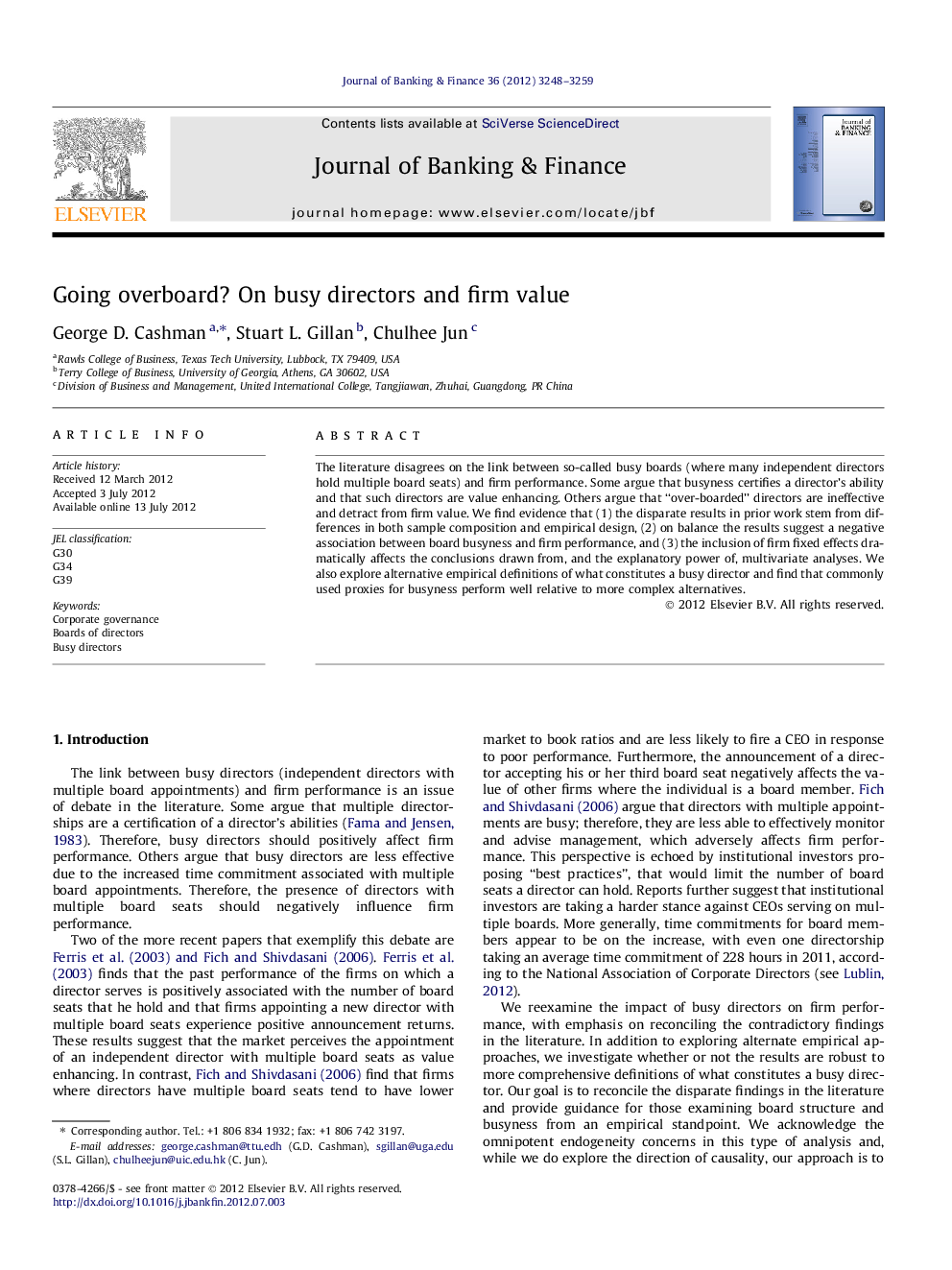| Article ID | Journal | Published Year | Pages | File Type |
|---|---|---|---|---|
| 5089509 | Journal of Banking & Finance | 2012 | 12 Pages |
The literature disagrees on the link between so-called busy boards (where many independent directors hold multiple board seats) and firm performance. Some argue that busyness certifies a director's ability and that such directors are value enhancing. Others argue that “over-boarded” directors are ineffective and detract from firm value. We find evidence that (1) the disparate results in prior work stem from differences in both sample composition and empirical design, (2) on balance the results suggest a negative association between board busyness and firm performance, and (3) the inclusion of firm fixed effects dramatically affects the conclusions drawn from, and the explanatory power of, multivariate analyses. We also explore alternative empirical definitions of what constitutes a busy director and find that commonly used proxies for busyness perform well relative to more complex alternatives.
⺠The disparate busy director findings result from different samples and methodology. ⺠Including firm fixed effects results in a constant negative relation. ⺠The common busy director definition is as informative as more intense alternatives.
